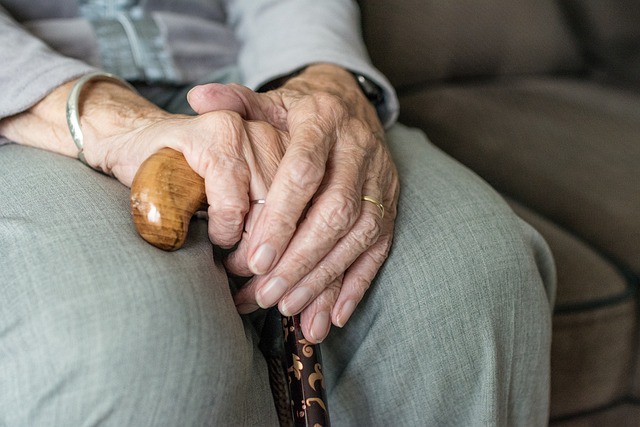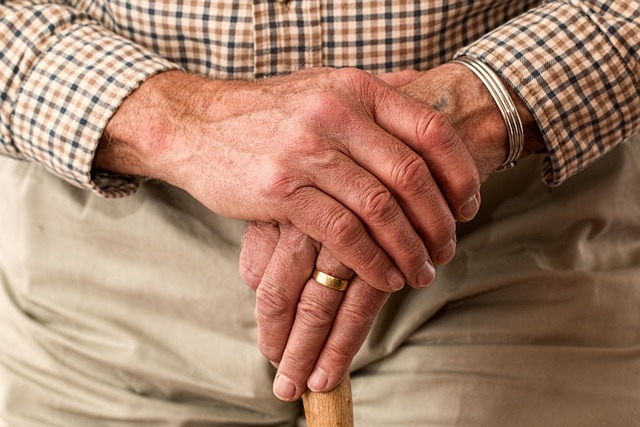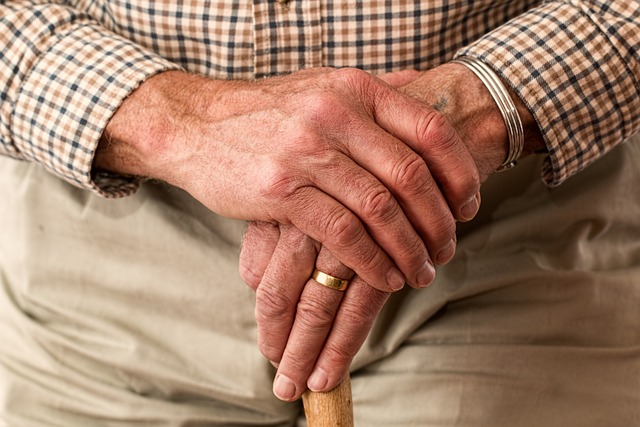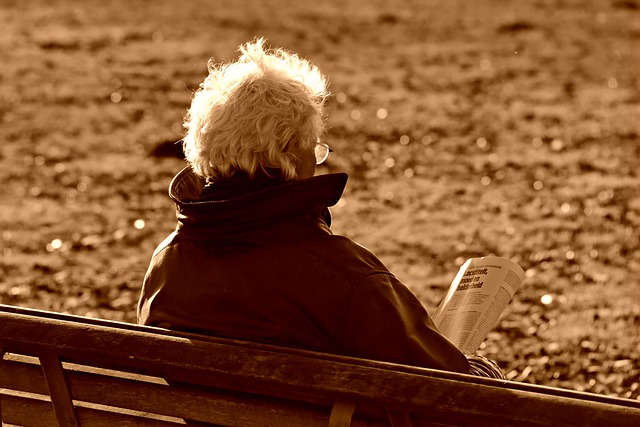Elderly companion services are designed to enable seniors to comfortably age in place by providing personalized care tailored to their unique needs. These services go beyond mere companionship, offering a range of support including assistance with daily tasks, emotional well-being, and social engagement, all within the familiarity and dignity of their own homes. Trained caregivers deliver individualized attention, adapting as seniors' needs change over time. This approach not only supports mental health by maintaining social connections but also offers families assurance that their elderly relatives are actively engaged and receiving appropriate care. These services often involve collaborative efforts with healthcare professionals and regular updates to families, creating a comprehensive plan that prioritizes the autonomy of seniors while addressing the concerns of loved ones. By focusing on adaptable, flexible care, elderly companion services play a crucial role in enhancing life quality for individuals in their later years, aligning with the preferences for independent living and cost-effective care solutions. When selecting a provider for elderly companion services, it's important to assess the unique requirements of your aging loved one, considering their medical conditions, mobility, cognitive abilities, daily routines, and personal preferences. The goal is to ensure that the care plan is empathetic, effective, and responsive to their changing health and personal circumstances over time. With a commitment to ongoing evaluation and adaptation of care plans, these services aim to provide specialized, compassionate care that improves the quality of life for the elderly and offers peace of mind to their families.
As the global population ages, the importance of compassionate, tailored care for the elderly becomes ever more pressing. This article delves into the multifaceted role of elderly companion services, offering insights into how these can be personalized to meet individual needs. We explore the distinct advantages of in-home care over facility living, emphasizing the comfort and familiarity it provides seniors. Navigating through the array of companion service providers, we provide guidance on selecting the right fit for your loved one’s unique circumstances. Moreover, we discuss practical steps for implementing and managing these services within a home environment, ensuring safety, dignity, and quality of life are upheld. Elderly companion services are transforming the way seniors receive care, enabling them to age with grace and independence in the comfort of their own homes.
- Understanding the Role of Elderly Companion Services
- Assessing the Needs: Tailored Care Plans for the Elderly
- The Benefits of In-Home Care vs. Facility Living for Seniors
- Navigating the Options: Choosing the Right Companion Service Provider
- Implementing and Managing Elderly Companion Services in the Home Environment
Understanding the Role of Elderly Companion Services

Elderly companion services play a pivotal role in supporting aging individuals who wish to remain in the comfort and familiarity of their own homes. These services extend beyond mere companionship; they encompass a spectrum of personalized care that addresses the holistic needs of seniors, from assistance with daily activities to providing emotional support. Professionally trained caregivers offer a tailored approach to elder care, ensuring that each senior’s unique preferences and requirements are met with compassion and respect. This not only fosters a sense of independence and dignity but also helps maintain the social connections that are crucial for mental well-being. With elderly companion services, families can have peace of mind knowing their loved ones are engaged in meaningful interactions and receiving the care they need to thrive in their later years.
Incorporating elderly companion services into an in-home care plan allows for a seamless integration of care that is both flexible and adaptable to changing needs. These services can be adjusted as necessary, providing seniors with a consistent and reliable source of support. From medication reminders and light housekeeping to companionship on daily walks or during shared activities, these caregivers are dedicated to enhancing the quality of life for elderly individuals. Furthermore, these services often include coordination with healthcare providers and regular updates to families, ensuring a comprehensive approach to elder care that respects both the autonomy of the senior and the priorities of their loved ones.
Assessing the Needs: Tailored Care Plans for the Elderly

When considering in-home care for elderly loved ones, assessing their specific needs is paramount to establishing a tailored care plan that ensures their well-being and comfort. Elderly companion services play a crucial role in this process by providing personalized support that aligns with the individual’s health status, daily routines, and personal preferences. A thorough evaluation involves understanding the elderly’s medical conditions, mobility issues, and cognitive functions to design care that is both effective and empathetic. This initial assessment paves the way for a collaborative approach where caregivers work closely with families to implement a plan that caters to the unique needs of their aging family member. The goal is to maintain the elder’s independence while providing the necessary assistance, thus fostering a safe and nurturing environment within the familiar confines of their own home. With elderly companion services, care plans are regularly reviewed and adapted as changes in health or preferences occur, ensuring that the care provided remains relevant and supportive throughout the aging process. These services not only enhance the quality of life for seniors but also offer peace of mind to their loved ones, knowing that their elder is receiving compassionate and attentive care tailored specifically to their needs.
The Benefits of In-Home Care vs. Facility Living for Seniors

In-home care offers a multitude of advantages for elderly individuals compared to facility living, aligning closely with the needs and preferences of seniors who value independence and familiar surroundings. Elderly companion services are a cornerstone of in-home care, providing not just assistance with daily tasks but also meaningful companionship. These services are tailored to maintain the dignity and autonomy of seniors, allowing them to age in place within the comfort of their own homes. The consistency of caregivers fosters strong, trusting relationships that can lead to better mental health outcomes for seniors, who often experience less stress and anxiety when in a familiar environment. In contrast, facility living can sometimes result in sensory overload and a lack of personal space, which might be challenging for individuals requiring a more tranquil setting.
Furthermore, in-home care allows for a highly customized approach to healthcare, with medical professionals visiting the home to provide treatment and monitoring. This eliminates the need for elderly loved ones to navigate the complexities of traveling to and from external facilities, which can be particularly daunting for those with mobility issues or chronic conditions. Additionally, in-home care is often more cost-effective than facility living, making it an accessible option for families on a budget. The ability to tailor care services to the specific needs of each senior means that their golden years can be spent with a level of comfort and personalization that respects their individual lifestyle choices and health requirements.
Navigating the Options: Choosing the Right Companion Service Provider

When considering in-home care for elderly loved ones, selecting a companion service provider that aligns with their specific needs is paramount. Elderly companion services offer a range of assistance from companionship and social interaction to help with daily activities like meal preparation, medication management, and personal care. The right provider will tailor a plan to maintain the dignity and independence of your loved one while ensuring they receive the necessary support in the comfort of their own home. It’s crucial to research and compare different providers, examining their credentials, reputation, and services offered. Look for those with experience in addressing age-related challenges and who prioritize the well-being of seniors. Personal referrals, online reviews, and certifications can guide your decision. Additionally, consider the level of care your loved one requires and ensure that the companion service provider can adapt as those needs change over time. This proactive approach to selecting elderly companion services will provide peace of mind, knowing that your loved one is in capable hands and receiving the quality of care they deserve.
Implementing and Managing Elderly Companion Services in the Home Environment

Implementing elderly companion services within a home environment requires careful planning and a tailored approach to ensure the comfort, safety, and well-being of aging adults. These services are designed to provide companionship, assistance with daily tasks, and support for seniors who wish to remain in their familiar surroundings. A key aspect of successful implementation involves selecting competent caregivers who can engage with the elderly individual, offering both emotional support and practical help. These professionals undergo training to handle a variety of needs, from medication management to mobility assistance, ensuring they can adapt to each senior’s unique situation. Additionally, coordinating with family members or other healthcare providers is crucial for a holistic care approach that addresses all aspects of the elderly person’s health and lifestyle.
Managing these services effectively hinges on consistent communication between the caregivers, healthcare professionals, and the elderly individual’s family. Regular assessments of the senior’s condition and preferences are essential to adjust care plans as needed. Furthermore, leveraging technology such as telehealth can facilitate ongoing monitoring and support for both the elder and their caregivers. The goal is to create a harmonious living environment that supports the senior’s dignity and autonomy while providing the necessary assistance to maintain their quality of life. By focusing on the individual’s needs and preferences, elderly companion services can make a significant difference in the lives of seniors, enabling them to age gracefully at home with the support they require.
In conclusion, transitioning to elderly companion services can offer a comforting and personalized alternative to traditional nursing homes or facilities. By understanding the critical role these services play in maintaining an elder’s independence and quality of life, families are better equipped to assess their loved ones’ needs and implement tailored care plans that address both physical and emotional well-being. Choosing the right companion service provider is a pivotal decision, one that can significantly impact the comfort and safety of seniors within their familiar home surroundings. The benefits of in-home care are manifold, offering a more intimate setting for elderly individuals to receive the attention and assistance they require without the constraints of facility living. Ultimately, with careful selection and effective management, elderly companion services stand as a compassionate choice for those seeking to honor the autonomy and dignity of their aging relatives.






